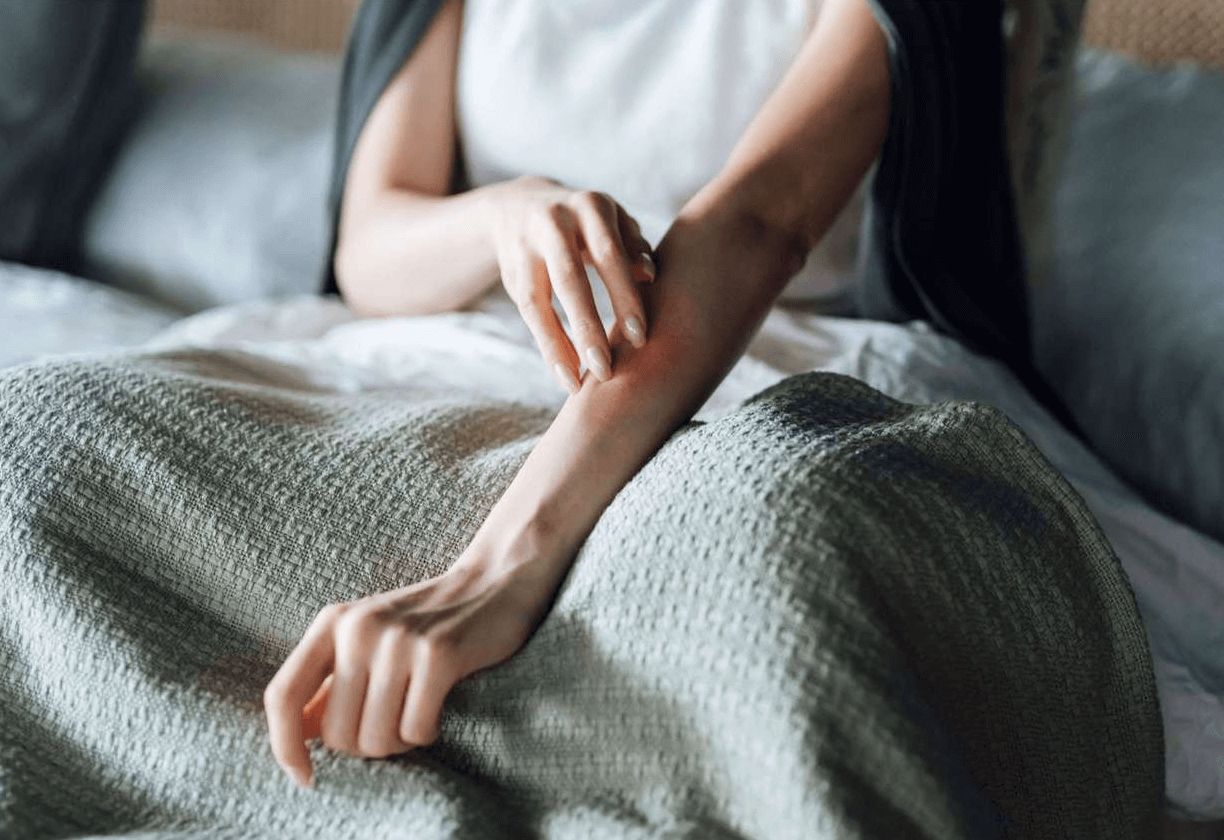- Thriving Guide
- Posts
- Why You Might Be Waking Up With Scratch Marks
Why You Might Be Waking Up With Scratch Marks
From nighttime habits to hidden pests, here's what could be causing those unexplained scratches on your skin.

You wake up and spot fresh red marks on your arms, legs, or back but you don’t remember scratching yourself in your sleep. It’s not uncommon to notice mystery scratch marks in the morning, and while it may seem strange, the reasons are often more practical than paranormal.
Unexplained scratches can result from everything from skin conditions and sleep habits to insect bites or even your pets. Understanding the underlying cause is the first step to preventing future irritation and protecting your skin while you sleep.
1. You’re Scratching Yourself While Asleep
The most common cause? You’re scratching yourself without even realizing it. If your skin is dry, itchy, or irritated due to allergies, eczema, or heat, you may scratch during sleep as a reflex.
Possible triggers include:
Dry skin or dehydration
Long or sharp fingernails
Irritating fabrics or jewelry
Night sweats or heat rashes
What to do:
Keep your nails short and smooth
Remove rings, watches, or bracelets before bed
Moisturize your skin at night especially after a shower
Use breathable, non-irritating bedding and pajamas
If scratches are minor, treat them with gentle cleansing and cover them with a bandage if needed.
2. You May Have Dermatographia
Dermatographia, also known as “skin writing,” affects 2–5% of people and causes the skin to develop red, raised welts after even mild scratching or pressure. These marks can show up minutes after contact and may linger for half an hour or more.
This condition is often triggered by histamine release, making the skin hypersensitive to touch.
Management options:
Over-the-counter antihistamines
Daily moisturization
Avoiding heat, pressure, or friction on skin
Early research also shows promise with a prescription medication called omalizumab, which may reduce symptoms in more persistent cases.
3. Skin Conditions and Rashes
Skin irritation caused by underlying conditions may leave your skin vulnerable to scratching or discomfort at night. Common culprits include:
Eczema or psoriasis
Contact dermatitis
Cholestasis (a liver condition)
Hormonal changes (menstruation, pregnancy, menopause)
Dehydration
Stress-related inflammation
These conditions often come with persistent itching, which can be worse at night when the body is at rest.
Tips for relief:
Identify and avoid known irritants or allergens
Keep skin well-hydrated with fragrance-free moisturizers
Address underlying health issues with your provider
For persistent rashes, topical or oral anti-inflammatory medications may be needed
4. Sleepwalking or Parasomnia
It’s not just your skin your nighttime behavior could also be to blame. Sleepwalking and other parasomnias (abnormal behaviors during sleep) can cause you to unknowingly scratch yourself or bump into objects that leave marks.
Roughly 4% of U.S. adults report sleepwalking episodes, which may increase with stress, poor sleep, or certain medications.
To reduce risk:
Maintain consistent sleep and wake times
Limit caffeine and screens before bed
Keep your sleep environment safe and uncluttered
Seek evaluation for any sleep disturbances
If parasomnia episodes are frequent or involve injury, consult a sleep specialist or neurologist.
5. Pests and Pets
Sometimes, the marks on your skin really are from another source like insects or even your sleeping companion.
Common pests include:
Bed bugs
Fleas
Lice
Mites (including scabies)
Chiggers
Ticks
Mosquitoes
Even pets can cause scratches if they share your bed or carry parasites on their fur. You might also get scratched accidentally by their claws during the night.
Treatment tips:
Apply anti-itch creams to soothe minor bites
Use insecticidal treatments for your home and pets
Launder bedding in hot water weekly
If scabies or lice are suspected, see a provider for prescription treatment
Preventive steps:
Keep pets off the bed or groom them regularly
Use mattress covers and wash linens frequently
Inspect hotel rooms or guest beds for signs of bed bugs
Avoid close contact with anyone who may be infested
When to See a Healthcare Provider
Most scratch marks heal on their own but don’t ignore signs that something more serious might be going on.
Seek medical advice if:
Scratches are deep, bleed heavily, or become infected
You experience ongoing itching that disrupts your sleep
You notice a recurring rash or swelling
You suspect a sleep disorder or parasomnia
Symptoms point to an underlying condition like eczema or liver issues
A dermatologist or primary care provider can help pinpoint the cause and offer personalized treatment, including testing for allergies or infections if necessary.
If this article helped you, share it or subscribe to our newsletter for more practical health insights.